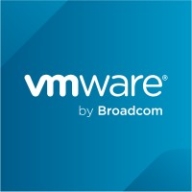

VMware Tanzu Data Solutions and CockroachDB are key players in the database management software category. VMware Tanzu holds an advantage in handling large-scale data efficiently, while CockroachDB leads with advanced fault tolerance and geo-distribution.
Features: VMware Tanzu Data Solutions shine with features like parallel processing, data compression, and a powerful Massively Parallel Processing (MPP) architecture, which optimizes data distribution and performance. It also supports external tables for efficient data loading and benefits from Greenplum architecture. CockroachDB is valued for its distributed nature, providing high fault tolerance and effective geo-partitioning. Its compatibility with PostgreSQL and efficient node synchronization are significant advantages.
Room for Improvement: VMware Tanzu needs better stability and query performance alongside enhanced scalability. Users mentioned inconsistent performance and the need for a modern monitoring tool. CockroachDB could improve PostgreSQL compatibility and disaster recovery features. Enhancements in automatic failover and geo-partitioning are also desired. Both products face scalability issues but require different focuses for improvements.
Ease of Deployment and Customer Service: VMware Tanzu provides versatile deployment across on-premises, public cloud, and hybrid environments, offering robust customer service. However, its Greenplum community is relatively small, affecting user experience insights. In contrast, CockroachDB is well-suited for cloud environments with public cloud deployment. Although its technical support is limited due to its open-source nature, it benefits from strong community support.
Pricing and ROI: VMware Tanzu offers competitive licensing, delivering substantial value, particularly features like GPText. It is open-source with paid support options. CockroachDB features affordable pricing but can be complex based on contract models. Users find value in its open-source version for experimentation and appreciate its balance of cost and performance. Both products offer cost-effective solutions despite differences in pricing models.
I have seen a return on investment with VMware Tanzu Data Solutions because of its speed and the robustness of the environment.
The issue was resolved efficiently.
Customer support for VMware Tanzu Data Solutions has been good with me and with VMware, including Broadcasts.
Most of our functions or jobs are queued due to that.
I have faced stability issues, mainly due to the storage my organization has, though I am not sure if it's specifically due to the tool.
For multi-region deployment, CockroachDB requires at least three plus replicas across data centers to achieve strong consistency across regions, which increases infrastructure costs including compute, storage, and networking.
VMware Tanzu Data Solutions can be improved as it is better and faster for administration and clusters, Dockers, and Kubernetes.
My experience with pricing, setup cost, and licensing for VMware Tanzu Data Solutions is that it is a bit expensive.
CockroachDB's geo-distribution feature is superior to traditional databases.
The principal aspect is the creation of Kubernetes clusters.
The product is not complex; I do not have to create stored procedures, functions, or views.
| Product | Market Share (%) |
|---|---|
| CockroachDB | 4.1% |
| VMware Tanzu Data Solutions | 0.7% |
| Other | 95.2% |

| Company Size | Count |
|---|---|
| Small Business | 7 |
| Midsize Enterprise | 1 |
| Large Enterprise | 5 |
| Company Size | Count |
|---|---|
| Small Business | 30 |
| Midsize Enterprise | 10 |
| Large Enterprise | 49 |
Cockroach Labs is the creator of CockroachDB, the cloud-native, resilient, distributed SQL database enterprises worldwide trust to run mission-critical AI and other applications that scale fast, avert and survive disaster, and thrive everywhere. It runs on the Big 3 clouds, on prem, and in hybrid configurations powering Fortune 500, Forbes Global 2000, and Inc. 5000 brands, and game-changing innovators, including OpenAI, CoreWeave, Adobe, Netflix, Booking.com, DoorDash, FanDuel, Cisco, P&G, UiPath, Fortinet, Roblox, EA, BestBuy, SpaceX, Nvidia, the USVA, and HPE. Cockroach Labs has customers in 40+ countries across all world regions, 25+ verticals, and 50+ Use Cases. Cockroach Labs operates its own ISV Partner Ecosystem powering Payments, Identity Management (IDM/IAM), Banking & Wallet, Trading, and other high-demand use cases. Cockroach Labs is an AWS Partner of the Year finalist and has achieved AWS Competency Partner certifications in Data & Analytics and Financial Services (FSI). CockroachDB pricing is available at https://www.cockroachlabs.com/pricing/
Vector, RAG, and GenAI Workloads
CockroachDB includes native support for the VECTOR data type and pgvector API compatibility, enabling storage and retrieval of high-dimensional embeddings. These vector capabilities are critical for Retrieval-Augmented Generation (RAG) pipelines and GenAI workloads that rely on similarity search and contextual embeddings. By supporting distributed vector indexing within the database itself, CockroachDB removes the need for external vector stores and allows AI applications to operate against a single, consistent data layer.
C-SPANN Distributed Indexing
At the core of CockroachDB’s vector search capabilities is the C-SPANN indexing engine. C-SPANN provides scalable approximate nearest neighbor (ANN) search across billions of vectors while supporting incremental updates, real-time writes, and partitioned indexing. This ensures low-latency retrieval in the tens of milliseconds, even under high query throughput. The algorithm eliminates central coordinators, avoids large in-memory structures, and leverages CockroachDB’s sharding and replication to deliver scale, resilience, and global consistency.
Machine Learning and Apache Spark Integration
CockroachDB integrates with modern ML workflows by supporting embeddings generated through frameworks such as AWS Bedrock and Google Vertex AI. Its compatibility with the PostgreSQL JDBC driver allows seamless integration with Apache Spark, enabling distributed processing and advanced analytics on CockroachDB data.
PostgreSQL Compatibility and JSON Support
CockroachDB speaks the PostgreSQL wire protocol, so applications, drivers, and tools designed to work with Postgres can connect to CockroachDB without modification, enabling seamless use of familiar SQL features and integration with the wider Postgres ecosystem. This includes support for advanced data types such as JSON and JSONB, which allow developers to store and query semi-structured data natively.
Geospatial and Graph Capabilities
CockroachDB also provides first-class geospatial data support, allowing developers to store, query, and analyze spatial data directly in SQL. For graph workloads, CockroachDB employs JSON flexibility to represent relationships and delivers query capabilities for graph-like traversals. This combination enables hybrid applications that merge relational, geospatial, document, and graph data within a single platform.
Analytics, BI, and Integration
To support high-performance analytics and BI, CockroachDB supports core analytical use cases and functions including Enterprise Data Warehouse, Lakehouse, and Event Analytics, and offers materialized views for precomputing complex joins and aggregations. Its PostgreSQL wire compatibility ensures direct connectivity with all relevant BI and analytics apps and tools including Amazon Redshift, Snowflake, Kafka, Google BigQuery, Salesforce Tableau, Databricks, Cognos, Looker, Grafana, Power BI, Qlik Sense, SAP, SAS, Sisense, and TIBCO Spotfire. Data scientists can interact with CockroachDB through Jupyter Notebooks, querying structured and semi-structured data and loading results for analysis. Change data capture (CDC) streams provide real-time updates to analytics pipelines and feature stores, keeping downstream systems fresh and reliable. Columnar vectorized execution accelerates query processing, optimizes transactional throughput, and minimizes latency for demanding distributed workloads.
MOLT AI-Powered Migration
Organizations often know their data infrastructure is not supporting the business, but find it too painful to change. CockroachDB’s MOLT (Migrate Off Legacy Technology) is designed to enable safe, minimal-downtime database migrations from legacy systems to CockroachDB. MOLT Fetch supports data migration from PostgreSQL, MySQL, SQL Server, and Oracle, with SQL Server and DB2 coming soon. CockroachDB also has a portfolio of data replication platform integrations including Precisely, Striim, Qlik, Confluent, IBM, etc.
Together, these capabilities ensure that CockroachDB supports both operational and analytical workloads, bridging traditional SQL applications with emerging Gen AI and ML use cases.
VMware Tanzu is a robust platform tailored for data warehousing, complex analytics, BI applications, and predictive analytics. It excels in scalability, performance, and parallel processing, enhancing data handling efficiency. Users report significant productivity improvements and streamlined operations, making it ideal for comprehensive data solutions.
We monitor all Relational Databases Tools reviews to prevent fraudulent reviews and keep review quality high. We do not post reviews by company employees or direct competitors. We validate each review for authenticity via cross-reference with LinkedIn, and personal follow-up with the reviewer when necessary.